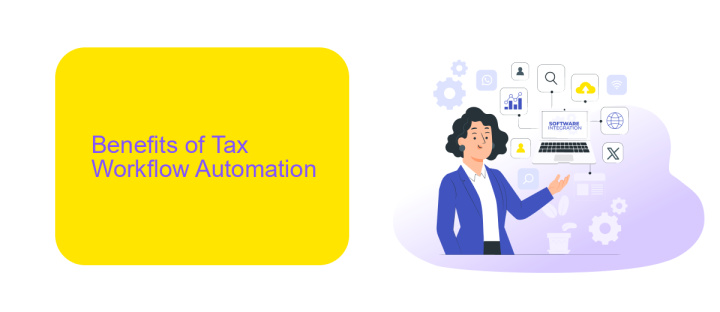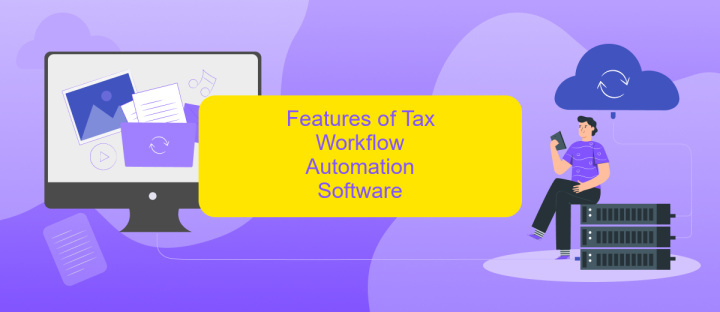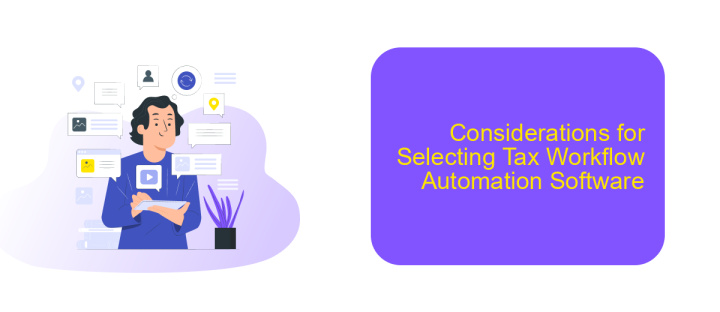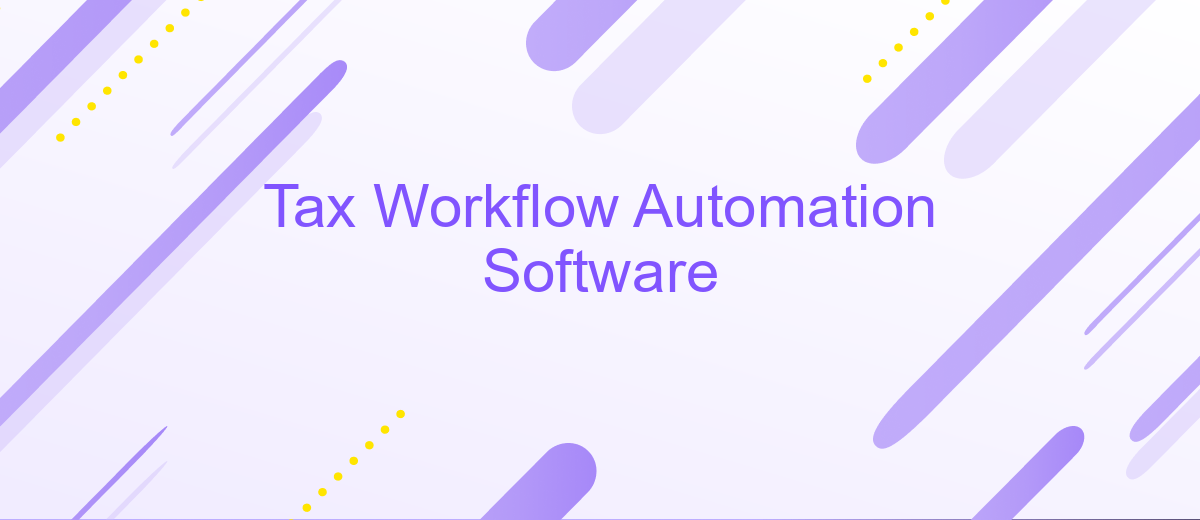Tax Workflow Automation Software
In today's fast-paced financial landscape, tax workflow automation software has become an indispensable tool for businesses of all sizes. By streamlining tax processes, reducing human error, and ensuring compliance with ever-changing regulations, this technology not only saves time and resources but also enhances overall productivity. Explore how tax workflow automation can revolutionize your tax management and drive efficiency across your organization.
Tax Workflow Automation Software
Tax workflow automation software streamlines the complex process of tax management by automating repetitive tasks, ensuring compliance, and reducing errors. These solutions are designed to handle various aspects of tax preparation, filing, and reporting, allowing businesses to focus on strategic planning rather than administrative tasks.
- Automates data collection and entry
- Ensures accurate tax calculations
- Facilitates timely tax filing
- Integrates with accounting and ERP systems
- Provides real-time compliance updates
One of the key features of modern tax workflow automation software is its ability to integrate with other business systems. Tools like ApiX-Drive enable seamless data transfer between your tax software and various platforms, ensuring that all information is up-to-date and accurate. By leveraging such integrations, businesses can significantly reduce manual work and enhance overall efficiency in their tax processes.
Benefits of Tax Workflow Automation

Tax workflow automation software offers numerous benefits that can significantly enhance the efficiency and accuracy of tax-related processes. By automating repetitive tasks, such as data entry and calculations, businesses can reduce the risk of human errors and ensure compliance with tax regulations. This leads to more accurate tax filings and minimizes the chances of costly penalties due to mistakes. Additionally, automation streamlines the workflow, allowing tax professionals to focus on more strategic activities, such as tax planning and advisory services, thereby adding greater value to the organization.
Another significant advantage of tax workflow automation is the seamless integration with other financial systems and tools. Using services like ApiX-Drive, businesses can effortlessly connect their tax software with various accounting and ERP systems, enhancing data synchronization and reducing manual intervention. This integration not only saves time but also ensures that all financial data is up-to-date and consistent across platforms. Furthermore, automated workflows can generate real-time reports and analytics, providing valuable insights for decision-making and improving overall financial management.
Features of Tax Workflow Automation Software

Tax workflow automation software streamlines the complex processes involved in tax preparation, filing, and compliance. By automating repetitive tasks, it significantly reduces the risk of human error and ensures timely completion of tax-related activities.
- Data Integration: Seamlessly integrates with various accounting and financial systems to import and export data effortlessly. Services like ApiX-Drive facilitate these integrations, ensuring smooth data flow between different platforms.
- Document Management: Efficiently organizes and stores tax documents, making it easy to retrieve and review files when needed. This feature also supports secure sharing and collaboration among team members.
- Compliance Monitoring: Keeps track of changing tax regulations and automatically updates workflows to ensure compliance. This helps businesses stay up-to-date with the latest legal requirements.
- Task Automation: Automates routine tasks such as data entry, calculations, and report generation, freeing up valuable time for tax professionals to focus on more strategic activities.
- Reporting and Analytics: Provides comprehensive reporting and analytics tools to monitor tax processes and identify areas for improvement. This feature helps in making informed decisions based on real-time data.
Overall, tax workflow automation software enhances efficiency, accuracy, and compliance in tax-related processes. By leveraging advanced features and integrations, businesses can optimize their tax operations and focus on strategic growth.
Considerations for Selecting Tax Workflow Automation Software

When selecting tax workflow automation software, it's crucial to consider several key factors to ensure you choose the best solution for your needs. The right software can streamline your tax processes, improve accuracy, and save time.
First, evaluate the software's ease of use and user interface. A user-friendly platform will reduce the learning curve and increase productivity. Additionally, consider the software's ability to integrate with your existing systems. Seamless integration is vital for maintaining data consistency and efficiency across your operations.
- Scalability: Ensure the software can grow with your business.
- Compliance: Verify that the software adheres to local and international tax regulations.
- Support: Look for robust customer support and training resources.
- Integration: Services like ApiX-Drive can facilitate smooth integration with various platforms.
Lastly, consider the cost and return on investment. While it may be tempting to choose the cheapest option, investing in a comprehensive solution that meets all your requirements will likely provide better long-term value. By carefully evaluating these considerations, you can select tax workflow automation software that enhances your tax management processes.
The Future of Tax Workflow Automation
The future of tax workflow automation is poised to revolutionize the way businesses manage their tax processes. As technology continues to advance, we can expect more sophisticated AI and machine learning algorithms to be integrated into tax software. These advancements will enable more accurate and efficient tax calculations, reducing the risk of human error and ensuring compliance with ever-changing tax regulations. Additionally, the use of blockchain technology could provide a secure and transparent way to track and verify tax transactions, further enhancing the reliability of automated tax workflows.
One of the key aspects of future tax workflow automation will be seamless integration with other business systems. Services like ApiX-Drive are already making it easier to connect various applications and automate data transfer between them. By leveraging such integration platforms, businesses can ensure that their tax software works in harmony with accounting, payroll, and other financial systems, creating a more cohesive and streamlined workflow. This not only saves time but also reduces the likelihood of discrepancies and ensures that all financial data is up-to-date and accurate.
- Automate the work of an online store or landing
- Empower through integration
- Don't spend money on programmers and integrators
- Save time by automating routine tasks
FAQ
What is Tax Workflow Automation Software?
How can Tax Workflow Automation Software benefit my business?
Is Tax Workflow Automation Software suitable for small businesses?
How do I integrate Tax Workflow Automation Software with my existing systems?
What should I look for when choosing Tax Workflow Automation Software?
Apix-Drive is a universal tool that will quickly streamline any workflow, freeing you from routine and possible financial losses. Try ApiX-Drive in action and see how useful it is for you personally. In the meantime, when you are setting up connections between systems, think about where you are investing your free time, because now you will have much more of it.


